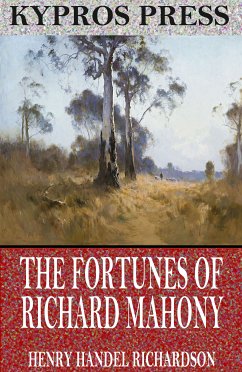
The Case of Richard Meynell (eBook, ePUB)
Enriched edition. Exploring faith, duty, and ethics in late Victorian England
Kommentar: Winthrop, Beatrice / Redaktion: Good Press
Versandkostenfrei!
Sofort per Download lieferbar
0,49 €
inkl. MwSt.
Weitere Ausgaben:

PAYBACK Punkte
0 °P sammeln!
In "The Case of Richard Meynell," Mrs. Humphry Ward delves into the intricate interplay of faith, morality, and the human condition. Set against the backdrop of late Victorian society, the narrative unfolds through the protagonist, Richard Meynell, a clergyman grappling with profound personal and professional dilemmas. Ward's literary style is characterized by her keen psychological insight and eloquent prose, exposing the tensions between rigid social structures and the individual's quest for authenticity. The novel serves as a poignant exploration of the challenges of modernity and the spiri...
In "The Case of Richard Meynell," Mrs. Humphry Ward delves into the intricate interplay of faith, morality, and the human condition. Set against the backdrop of late Victorian society, the narrative unfolds through the protagonist, Richard Meynell, a clergyman grappling with profound personal and professional dilemmas. Ward's literary style is characterized by her keen psychological insight and eloquent prose, exposing the tensions between rigid social structures and the individual's quest for authenticity. The novel serves as a poignant exploration of the challenges of modernity and the spiritual crises that pervade this transitional period, reflecting broader theological debates of the time. Mrs. Humphry Ward, a prominent novelist and social reformer, often addressed the complexities of human relationships and societal expectations in her works. Her own experiences as a woman navigating the male-dominated literary realm of the early 20th century, along with her commitment to social justice, likely inspired the moral quandaries faced by Meynell. Ward's engagement with prominent intellectual circles, including her friendships with notable figures like George Eliot and Thomas Hardy, informed her exploration of the conflict between faith and reason. This novel is highly recommended for readers interested in psychological depth and the exploration of Victorian morality. Ward's articulate narrative not only challenges the reader's perceptions of faith and doubt but also invites reflection on the broader implications of personal integrity within social frameworks. "The Case of Richard Meynell" is an essential read for those seeking to understand the complexities of human experience within the context of societal expectations. In this enriched edition, we have carefully created added value for your reading experience: - A succinct Introduction situates the work's timeless appeal and themes. - The Synopsis outlines the central plot, highlighting key developments without spoiling critical twists. - A detailed Historical Context immerses you in the era's events and influences that shaped the writing. - A thorough Analysis dissects symbols, motifs, and character arcs to unearth underlying meanings. - Reflection questions prompt you to engage personally with the work's messages, connecting them to modern life. - Hand-picked Memorable Quotes shine a spotlight on moments of literary brilliance. - Interactive footnotes clarify unusual references, historical allusions, and archaic phrases for an effortless, more informed read.
Dieser Download kann aus rechtlichen Gründen nur mit Rechnungsadresse in A, B, BG, CY, CZ, D, DK, EW, E, FIN, F, GR, H, IRL, I, LT, L, LR, M, NL, PL, P, R, S, SLO, SK ausgeliefert werden.













